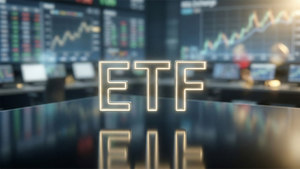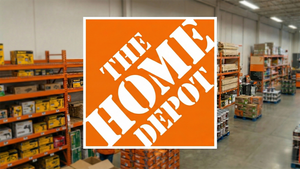
Kohl's has gotten torched over the last six months - since June 2024, its stock price has dropped 36% to $14.85 per share. This was partly driven by its softer quarterly results and might have investors contemplating their next move.
Is now the time to buy Kohl's, or should you be careful about including it in your portfolio? Dive into our full research report to see our analyst team’s opinion, it’s free.Despite the more favorable entry price, we're cautious about Kohl's. Here are three reasons why you should be careful with KSS and a stock we'd rather own.
Why Do We Think Kohl's Will Underperform?
Founded as a corner grocery store in Milwaukee, Wisconsin, Kohl’s (NYSE: KSS) is a department store chain that sells clothing, cosmetics, electronics, and home goods.
1. Revenue Spiraling Downwards
A company’s long-term sales performance can indicate its overall quality. Any business can put up a good quarter or two, but many enduring ones grow for years. Over the last five years, Kohl’s demand was weak and its revenue declined by 3.4% per year. This fell short of our benchmarks and signals it’s a low quality business. 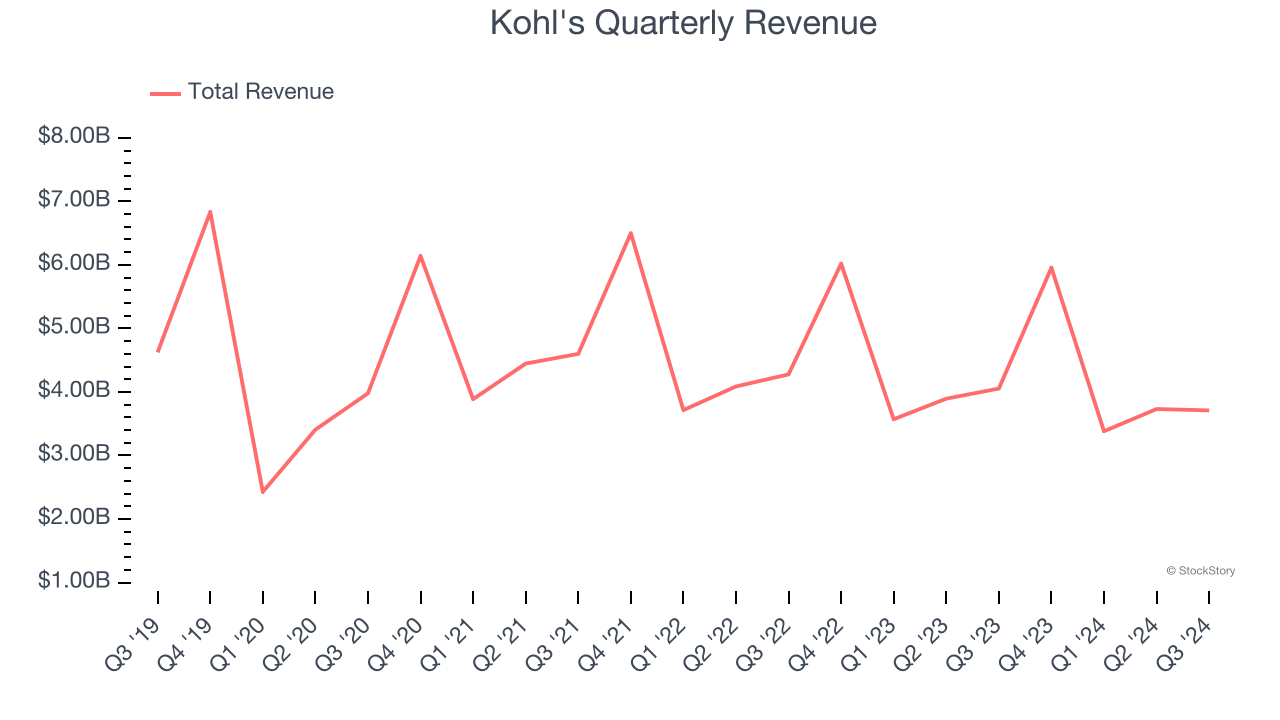
2. Shrinking Same-Store Sales Indicate Waning Demand
Same-store sales is a key performance indicator used to measure organic growth at brick-and-mortar shops for at least a year.
Kohl’s demand has been shrinking over the last two years as its same-store sales have averaged 5.5% annual declines.
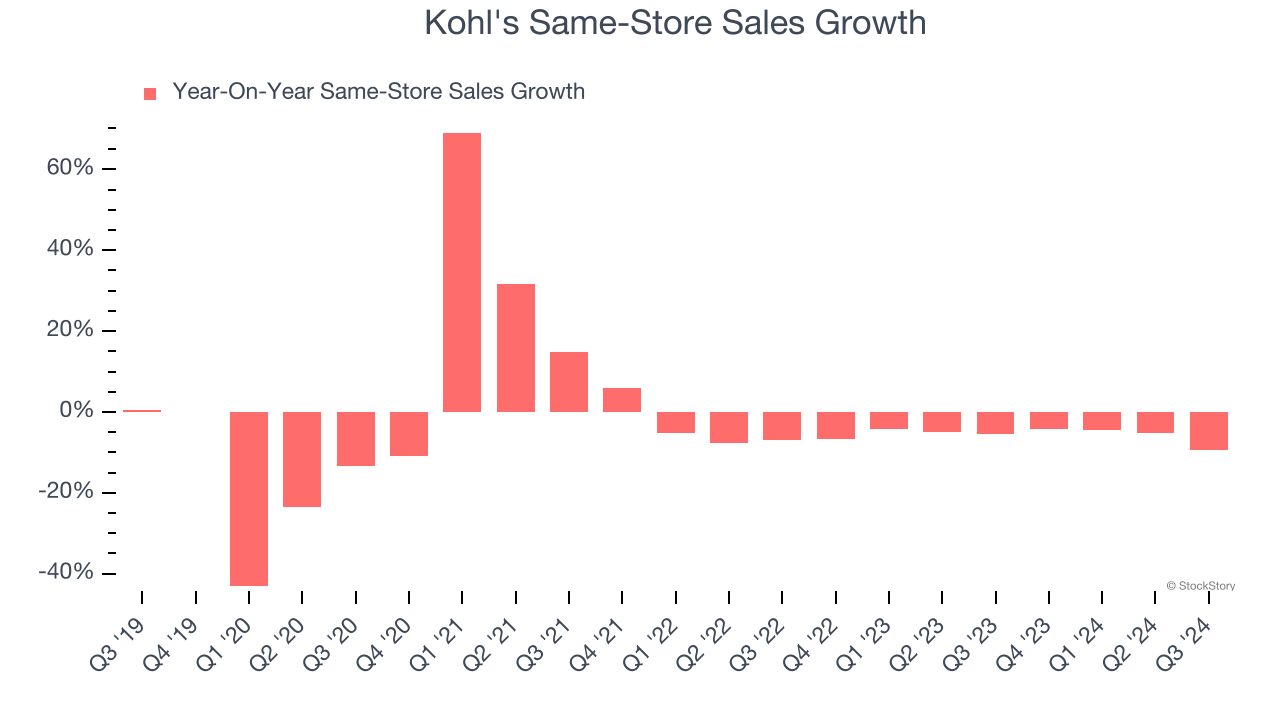
3. High Debt Levels Increase Risk
As long-term investors, the risk we care about most is the permanent loss of capital, which can happen when a company goes bankrupt or raises money from a disadvantaged position. This is separate from short-term stock price volatility, something we are much less bothered by.
Kohl’s $7.78 billion of debt exceeds the $174 million of cash on its balance sheet. Furthermore, its 6× net-debt-to-EBITDA ratio (based on its EBITDA of $1.35 billion over the last 12 months) shows the company is overleveraged.
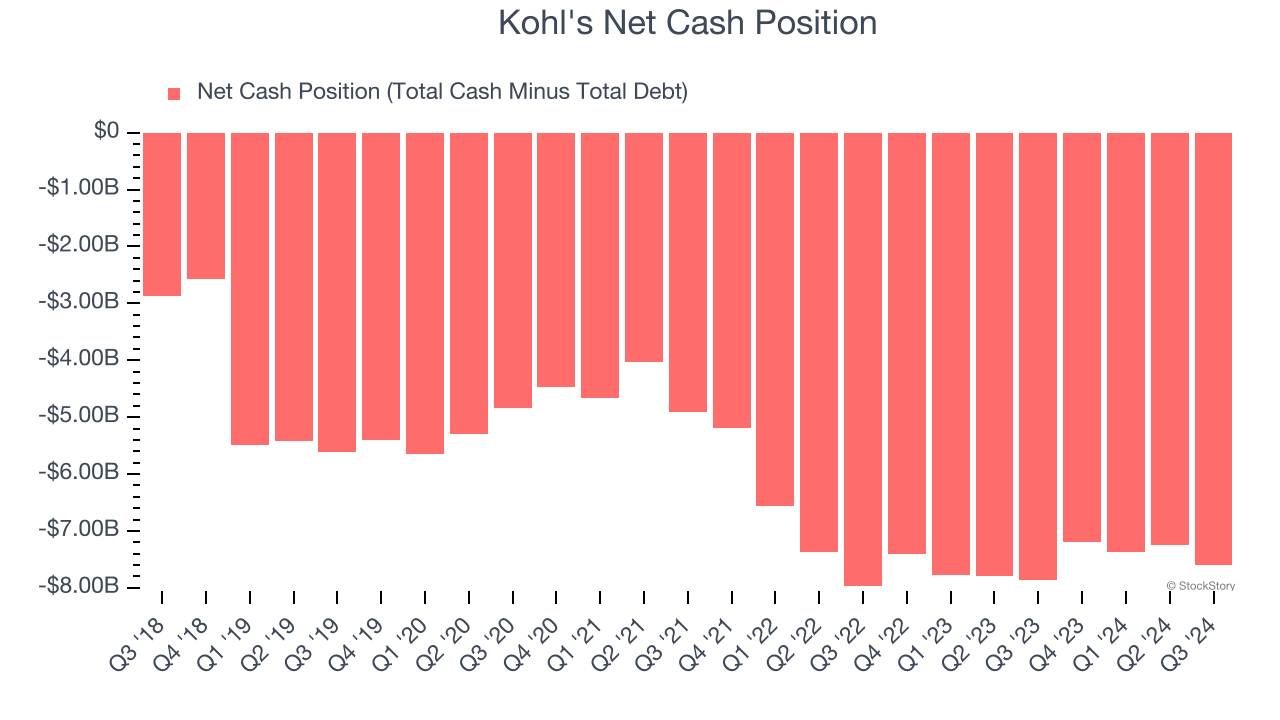
At this level of debt, incremental borrowing becomes increasingly expensive and credit agencies could downgrade the company’s rating if profitability falls. Kohl's could also be backed into a corner if the market turns unexpectedly – a situation we seek to avoid as investors in high-quality companies.
We hope Kohl's can improve its balance sheet and remain cautious until it increases its profitability or pays down its debt.
Final Judgment
We cheer for all companies serving everyday consumers, but in the case of Kohl's, we’ll be cheering from the sidelines. Following the recent decline, the stock trades at 8.2× forward price-to-earnings (or $14.85 per share). While this valuation is optically cheap, the potential downside is huge given its shaky fundamentals. There are better investments elsewhere. Let us point you toward Microsoft, the most dominant software business in the world.
Stocks We Like More Than Kohl's
The Trump trade may have passed, but rates are still dropping and inflation is still cooling. Opportunities are ripe for those ready to act - and we’re here to help you pick them.
Get started by checking out our Top 5 Growth Stocks for this month. This is a curated list of our High Quality stocks that have generated a market-beating return of 175% over the last five years.
Stocks that made our list in 2019 include now familiar names such as Nvidia (+2,691% between September 2019 and September 2024) as well as under-the-radar businesses like Comfort Systems (+783% five-year return). Find your next big winner with StockStory today for free.


